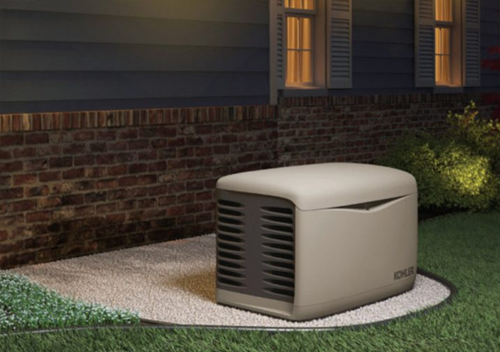
In our increasingly power-dependent world, generators play a crucial role in maintaining electrical supply during outages. Whether for home areas, businesses, or significant events, having a reliable generator is essential. Yet, like any mechanical system, generators require routine maintenance to operate efficiently and effectively. This blog post delves into how routine generator maintenance can prevent repairs, extend the life of your system, and ultimately save you money.
1. Understanding the Importance of Routine Maintenance
Routine maintenance involves regular checks, servicing, and replacement of parts as needed. By adhering to a maintenance schedule, you can ensure your generator remains in optimal working condition. Here are some compelling reasons why regular maintenance is vital:
A. Prevention of Unexpected Breakdowns
One of the most prominent benefits of routine maintenance is its ability to minimize unexpected generator breakdowns. During regular checks, technicians can identify and address potential issues before they escalate into severe problems, which can require costly repairs.
B. Enhancing Reliability
Regularly serviced generators are more reliable and offer peace of mind. Whether you rely on your generator for emergency power in your home or business continuity during outages, consistent maintenance ensures the system can perform whenever needed.
C. Compliance with Warranty Requirements
Many warranties require proof of regular maintenance to remain valid. Failing to follow maintenance schedules may void your warranty, leaving you financially exposed should significant repairs be necessary.
2. Key Routine Maintenance Tasks
To prevent repairs effectively, here are critical maintenance tasks you should perform regularly:
A. Oil and Filter Changes
Frequency: Every 50-100 hours of operation or as specified in the user manual.
Importance: Oil is crucial for lubricating engine components, reducing friction, and maintaining performance. Dirty or low oil can accelerate engine wear and lead to overheating, resulting in costly repairs.
B. Air Filter Inspection and Replacement
Frequency: Monthly or as needed, depending on the environment.
Importance: A clogged air filter restricts airflow to the engine, causing inefficiencies and potential failure. Regularly inspecting and replacing the air filter keeps the engine running smoothly.
C. Fuel System Maintenance
Frequency: Check fuel lines regularly and replace fuel as needed for seasonal usage.
Importance: Old or stale fuel can lead to clogs and difficulty starting the generator. Using fuel stabilizers for generators not in frequent use can help preserve fuel quality and prevent issues.
D. Battery Maintenance
Frequency: Quarterly checks.
Importance: Batteries power the generator during startup. Inspecting battery connections for corrosion, ensuring secure terminals, and testing battery performance can prevent starting issues when needed.
E. Regular Load Testing
Frequency: Every six months or at the start of the season.
Importance: Load testing ensures your generator can handle its rated power output. This test helps identify weaknesses in performance and ensures that the generator is ready for emergency use.
3. Benefits of Routine Maintenance
A. Cost-Effectiveness
Routine maintenance reduces the likelihood of extensive and expensive repairs. By preventing small issues from evolving into larger problems, you can save considerable money over the long term.
B. Extended Lifespan
A well-maintained generator will typically last longer than one that is neglected. Regular service ensures that all components are working efficiently, ultimately extending the life of your investment.
C. Improved Efficiency
Regular maintenance can enhance your generator’s efficiency, meaning it consumes less fuel while providing reliable power.
D. Safety Assurance
Generators can pose safety hazards if not maintained correctly. Regular checks help to identify potential electrical issues or fuel leaks that could lead to fires or electrical shock.
4. How to Implement a Routine Maintenance Plan
Creating a routine maintenance plan can help ensure your generator receives the attention it needs:
A. Consult the Manufacturer’s Manual
Your generator’s user manual outlines recommended maintenance schedules and procedures. Use this as a guide to create a tailored maintenance plan.
B. Keep Comprehensive Logs
Maintain logs of all maintenance checks, repairs, and part replacements. This documentation will be invaluable for warranty claims and when discussing issues with repair technicians.
C. Hire Professional Services
Consider hiring a professional service provider for maintenance and inspections. Professionals can not only perform essential tasks but can also spot potential issues that you might miss.
D. Schedule Regular Reminders
Set calendar reminders for when routine maintenance is due. This will help ensure that checks are never overlooked or forgotten.
Conclusion: Prevent Repairs Through Consistent Maintenance
Routine maintenance is a critical aspect of generator ownership that cannot be overlooked. By investing time and resources into regular servicing, you can prevent repairs, ensure reliability, and foster safety. Prioritizing maintenance will keep your generator operational and your mind at ease during power outages.
Have you had experiences with generator maintenance that either helped or hurt you? Share your insights in the comments below! And don’t forget to share this post with fellow generator owners to emphasize the importance of routine maintenance!
continue reading
Related Posts
Generators are essential for providing backup power during outages, but […]
Generators are invaluable assets, providing much-needed power during outages and […]
Power outages can happen anytime, and their impact can range […]



